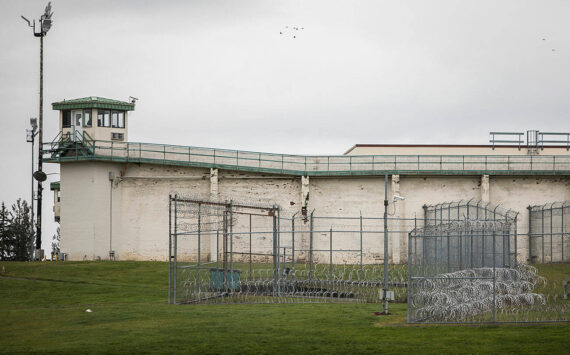U.S. Sen. Patty Murray (D-Tacoma) stopped by Tacoma General Hospital Tuesday to help a consortium of local hospitals and community colleges launch a new invasive cardiovascular technology (ICT) training program.
Through this partnership, an ICT degree program is now available for students in Western Washington. The participating organizations include MultiCare Health System in Tacoma, Good Samaritan Community Healthcare in Puyallup, Tacoma Community College, Pierce College in Puyallup and Spokane Community College.
This innovative joining of forces addresses health care and employment, Murray said, noting the demand for qualified invasive cardiovascular technologists due to heart disease being the biggest health problem in the United States.
We have over 200,000 people in the state of Washington who are not employed. Obviously, theres a skills gap – this program helps address that, said Murray, who as a member of the Senate Appropriations Committee helped to secure program funding through a $196,000 U.S. Department of Labor High Growth Job Training Initiative grant.
MultiCare Health System and Good Samaritan Community Healthcare also provide in-kind contributions of classroom and cardiovascular lab space.
I think its a very wise investment of our dollars, Murray said.
Heres how the program works: Local students will enroll in Spokane Community Colleges nationally recognized ICT program, but take all prerequisite and general science classes at Tacoma Community College or Pierce College in Puyallup.
Local students will then join their Spokane Community College counterparts via videoconferencing for all cardiovascular technology courses, while completing their clinical requirements at health care facilities in the Seattle-Tacoma area – or other locations across the country – where Spokane Community College has clinical agreements.
Though there are 25 ICT programs nationwide, previously only Spokane Community College offered the two-year degree program which graduates 15 or fewer people per year.
The closest program to Western Washington had been located in San Diego.
It was felt the current system did not meet the needs of Western Washington, said George Brown, vice president of acute care services and facilities at MultiCare Health System.
Medical employers currently report great difficulty in recruiting qualified invasive cardiovascular technologists in Western Washington, Brown said, noting recruitment for each invasive cardiovascular technologist vacancy can cost $20,000 or more.
The use of staffing agencies to fill ICT vacancies is cost- prohibitive, and patients face delays in receiving treatment if labs are understaffed, he added.
And the problem is only going to get worse. The existing shortage of ICTs is expected to increase by at least 28 percent by 2010, Brown said, because of new technologies and the aging population.
We need more troops on the front lines, stated Darren Powell, invasive cardiology program director at Spokane Community College.
Officials hope this alliance between competing schools and hospitals is just the beginning of turning the tide in treating heart health.
Were friendly competitors, but we do compete with each other, pointed out Connie Wiletsky, vice president of patient care at Good Samaritan Community Healthcare, noting that hasnt prevented the development partners from creating something that is needed in the community.
I hope there will be other opportunities for partnerships like this, she said.
Pierce College District Chancellor Steve Wall described such a collaboration as the wave of the future.
We are really well positioned for other things that come up in this field, said Christi McCarren, a cardiovascular services administrator with MultiCare Health System.
In the future, a non-invasive cardiovascular technology program from Spokane Community College may be added to the program as well, she said.
With a 15-student capacity, the ICT program in Western Washington begins this fall, graduating its first class in June 2006. Upon successful completion, students earn an associate of applied sciences (AAS) degree in cardiovascular technology through Spokane Community College.
There is close to 100 percent job placement before or at the time of graduation. Entry-level invasive cardiovascular technologists can make between $20 and $22 an hour.
SEN. MURRAY TO MARK MILESTONE IN OPERATION SAFE COMMERCE
Sen. Patty Murray and officials from the Port of Tacoma, Port of Seattle, Starbucks Coffee Company and the companies involved in Operation Safe Commerce (OSC) project teams will announce the completion of the test phase of Operation Safe Commerce (Round 1) at 10 a.m., Thursday, at Terminal 7C at the Port of Tacoma. They will also discuss some of the initial findings of the nine test programs routed through the Port of Tacoma and Port of Seattle. OSC is a federal program designed to test and evaluate technologies and techniques to improve the security of containerized shipping. The objective of OSC to create the knowledge base for possible future international standards for secure containerized shipment – from the overseas point of origin through the supply chain to the U.S. point of distribution.




